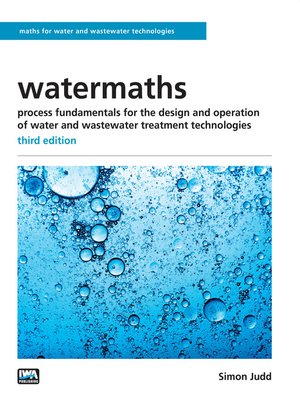
Sign up to save your library
With an OverDrive account, you can save your favorite libraries for at-a-glance information about availability. Find out more about OverDrive accounts.
Find this title in Libby, the library reading app by OverDrive.



Search for a digital library with this title
Title found at these libraries:
| Loading... |
Watermaths presents the mathematics underpinning the design and operation of the individual unit process technologies used for purifying water and wastewater. The book aims to provide the reader with sufficient information to enable them to tackle the most important calculations in this area, without requiring any prior knowledge of the subject and assuming only a very basic grounding in science or engineering. It focuses on the most essential areas of knowledge required, containing tuition in basic numeracy, chemistry, process engineering and fluid physics, as well as cost analysis. The simple and succinct delivery is designed to get the reader up to speed as rapidly as possible: sufficient background information is provided to explain the purpose of the calculations, and ultimately tackle the complete wastewater reclamation plant design problem included in the book.
Example calculations are provided within each chapter, each followed by exercises intended to reinforce the learning (and for which solutions are appended). Exercises range in difficulty from simple single calculational-step problems to more complex ones, and the over-arching design problem provides some context to the mathematics. The book can be understood by those relatively new to the water sector, and is intended as a primer rather than a comprehensive handbook. It is nonetheless sufficiently comprehensive to permit design calculations for most water and wastewater treatment unit processes. Core disciplines covered include: manipulation of equations, including logarithmic and exponential expressions
fluid physics for describing flow through pipes, channels and filters
chemical concentrations and chemical/biochemical reactions
chemical/biochemical reaction kinetics
mass balance for determining fate of materials through unit processes
mass transfer for determining transfer of materials across boundaries within processes
reactor theory for designing biochemical and chemical reaction vessels
cost analysis, including capital and operating expenditure with discounting. New to the third edition: new chapter on cost analysis
further explanation of the classical unit operations types
illustrations expanded to include unit operation schematics and symbols
new examples and exercises
updated design problem. Watermaths ... just add water.






